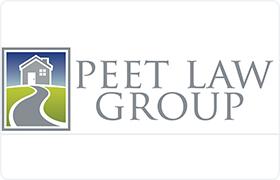Lowell Land Use & Zoning Lawyer, Vermont
Sponsored Law Firm
-
 x
x

Click For More Info:
-
Law Office of Fred V. Peet
55 Patchen Rd South Burlington, VT 05403» view mapReal Estate Law Vermont’s Real Estate Law Source
The Law Offices of Fred V. Peet, P.C. concentrates its practice on residential and commercial real estate transactions.
800-960-0161
Stephen A. Reynes
Land Use & Zoning, Litigation, Immigration, Environmental Law
Status: In Good Standing
Amerin Loring Aborjaily
Land Use & Zoning, Litigation, Election & Political, Administrative Law
Status: In Good Standing Licensed: 11 Years
Stephen A. Reynes
Land Use & Zoning, Environmental Law, Religious Discrimination, Administrative Law
Status: In Good Standing
 Fred V. Peet South Burlington, VT
Fred V. Peet South Burlington, VT Practice AreasExpertise
Practice AreasExpertise
